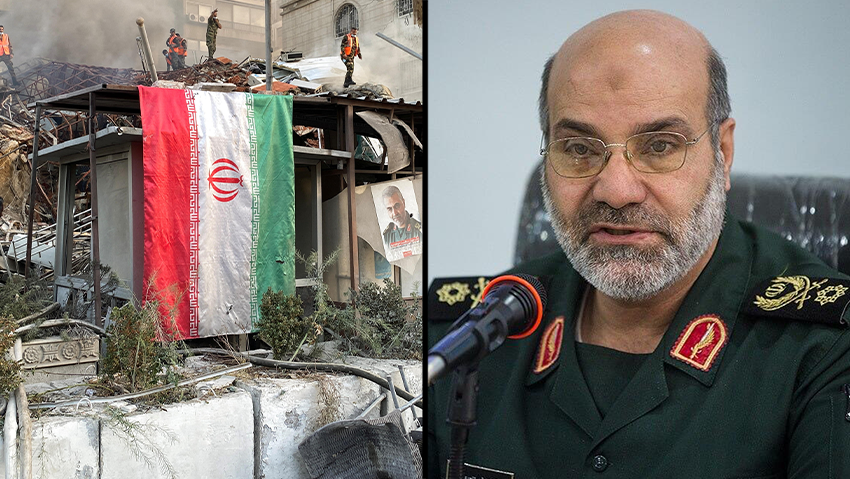"Iran International", a London-based Persian-speaking channel opposing the Islamic Republic regime, released new information on Thursday about the killing of Hassan Mahdawi, a high-ranking member of the Revolutionary Guards. This event, believed to be carried out by Israel, has led to threats of retaliation from Iran. Mahdawi, who was the commander of the Quds Force in Syria and Lebanon, had visited a friend in Tehran with a group of his peers on the eve of his assassination. During this visit, he revealed to several Revolutionary Guards members that he planned to travel to Syria the following day.
Scene of destruction in Damascus
Shortly thereafter, Mahdawi journeyed to Mashhad, Iran's second-largest city, and informed two individuals there of his impending trip to Syria. The report states that later, a senior member of the Revolutionary Guards boarded a direct six-hour flight to Damascus. The purpose of this trip was to attend a confidential meeting with several other commanders at the Iranian consulate in Damascus on April 1. Despite suffering from severe diabetes and recovering from heart surgery, Mahdawi did not take precautions regarding his personal security towards the end of his tenure.
Known also as Mohammad Reza Zahedi, Mahdawi reportedly served as the commander of the Quds Force of the Revolutionary Guards in Syria and Lebanon. However, his closest ties were with Hezbollah. He was the sole non-Lebanese member of the senior advisory group of the Shiite terrorist organization. During the Second Lebanon War, Mahdawi served as one of Hezbollah's military commanders, alongside Imad Mughniyeh and Mustafa Badr al-Din.
Over the past years, Mahdawi has established significant ties with Iran's regional proxy forces. He was admired by Iran's Supreme Leader Ali Khamenei and maintained a close relationship with Hassan Nasrallah. As per the Iranian opposition channel's report, Nasrallah made three separate trips to Iran, personally requesting Khamenei to prolong Mahdawi's assignment in Syria and Lebanon.
Nasrallah's particular commitment to Mahdawi was, unsurprisingly, linked to the senior Revolutionary Guard's influence over the funds Iran allocated to Hezbollah. Mahdawi was successful in persuading Khamenei and the Quds Force commander, Ismail Qaani, to raise the wages of proxy forces such as Hezbollah. This led to a situation where members of the Shiite terrorist organization received salaries five times greater than those of Iranian soldiers serving in the Ayatollah's army.
On the day he was assassinated, Mahdawi attended what was intended to be a clandestine meeting. However, according to "Iran International" sources, Israel strategically planned for the assassination to occur within a building adjacent to the embassy in Damascus. One source suggested that Israel was employing a dual strategy, intending to provoke an Iranian attack that would subsequently escalate the conflict to encompass the borders of the Islamic Republic.
Amid global scrutiny on Israel due to the lingering Gaza conflict and the civilian casualties involved, an Iranian assault could shift the narrative, allowing Israel to more convincingly assume the part of the victim. This scenario allows Israel to retaliate within the borders of the Islamic Republic while the U.S. and European nations rally in its support again. The report suggests that this situation could potentially eliminate barriers to financial assistance for Israel, including the current holdup of $14 billion from the U.S. in Congress.
On the other hand, the Iranian opposition channel implies that a direct Iranian strike on Israel, coupled with a counter-strike within the Islamic Republic, might alter the dynamics between Tehran and Riyadh, the Saudi capital. This is particularly significant in an election year in the U.S., with Donald Trump somewhat likely to make a comeback to the White House. The report also posits that an Israeli attack on Iran, backed by military aid from the U.S. and Middle Eastern moderate nations, could wreak havoc on the Ayatollah regime's economy.





